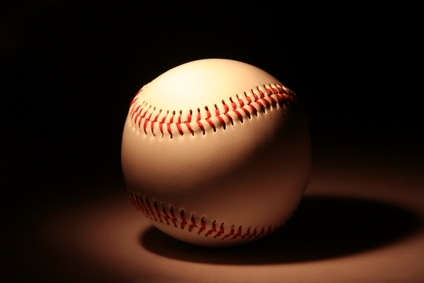Sports memorabilia can be valued in the range of hundreds to thousands of dollars, and like any other market of expensive objects, there are plenty of forgers and counterfeits. Identifying fake pieces of memorabilia is important to the integrity of any marketplace. If the amount of objects in the market are artificially inflated due to forgery, the value of the real items will go down with the fake ones. The reward to the forger can seem great, but everyone else suffers. Authenticating a sports object can seem difficult without the eye of an expert, but there are lots of ways to check if an object is authentic or not. The authentication process varies, depending upon the type of sport, type of object and whether or not there is an autograph.

Do Your Research
Research is the most valuable weapon against any type of forgery. The more a person knows about the object they are trying to authenticate, the more likely they will be to point out a fake. Most objects will have a detailed history of ownership behind them. Every seller should be able to give a detailed recollection of how they obtained the particular piece of sports memorabilia that they are selling. For example, if someone is trying to sell a walk-off home run ball from the World Series, but the story about how they got it seems too vague, they may be lying about how they got it. Legitimate sports collectors love to know the history behind the objects they are collecting, and they will proudly tell that history when asked about it.
Authenticating Signatures
Objects with signatures make spotting fake items easier and harder at the same time. The Internet makes it really easy to check and see how certain players sign their names, but this same resource is available to counterfeiters as well. Autographed items also tend to fetch the highest prices, making them more attractive for forgeries. The best way to ensure that a forgery is not being purchased is to make sure the signed objects comes with a certificate of authenticity. Certificates are issued by experts in the market who have seen countless fakes, and who intuitively know how to spot fake signatures from real ones. Buyers should be very cautious about purchasing autographed objects from sellers who do not have a certificate unless they are certain that the signature has been verified by a professional.
Using the Internet and Social Media
The Internet is a very powerful resource for checking the authenticity of sports objects outside of identifying signatures. There are countless forums, groups and social media communities dedicated to collecting memorabilia. These communities provide an invaluable resource to anybody who is looking to authenticate any kind of sports object. Some of these online communities have sports fans who love to pour over photos of sports memorabilia to see if they are real. Anyone who is not sure about an object they are looking to buy could benefit from the expertise provided by sports collectors on forums, newsgroups, photo sharing sites or social media.
This post is brought to you by Sam Wiliken, an baseball fanatic and avid collector of baseball memorabilia. For those rare baseball items, he looks to http://www.ajsportsworld.com/. They provide a range of sports memorabilia including Jose Bautista autograph and Bobby Orr memorabilia.

